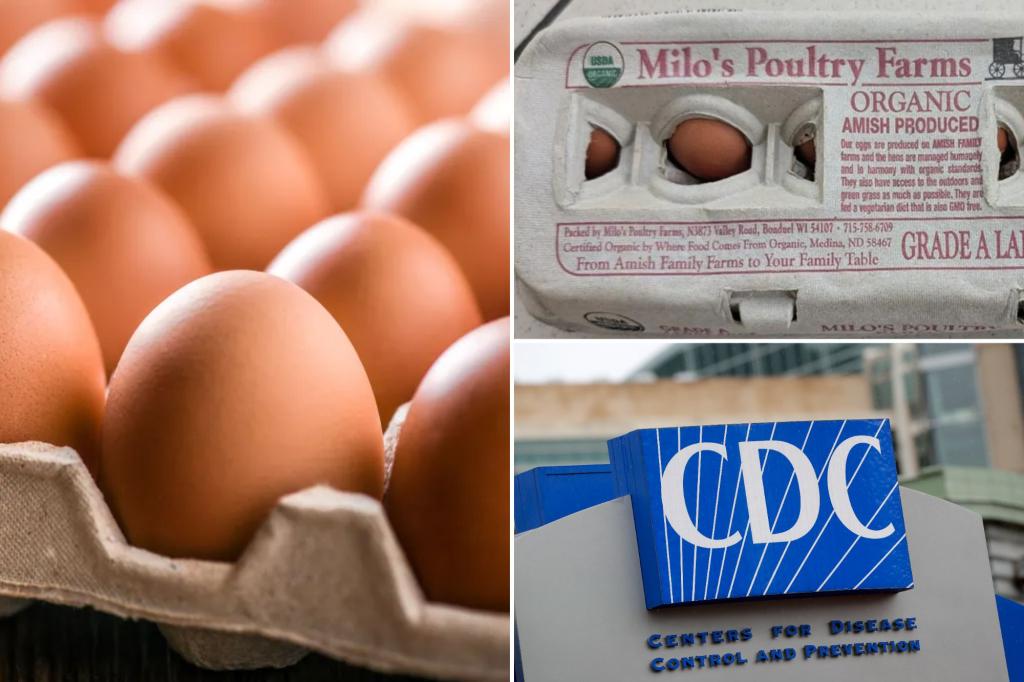Wisconsin health officials have issued a recall of eggs after an outbreak of salmonella infections in 65 people across nine states, with the source believed to be a Wisconsin farm. Among those infected, 42 are from Wisconsin, where the eggs were sold. The eggs were distributed in Wisconsin, Illinois, and Michigan through retail stores and food service distributors. The recall includes all types of eggs in containers labeled with ‘Milo’s Poultry Farms’ or ‘Tony’s Fresh Market.’
The U.S. Centers for Disease Control and Prevention confirmed that 65 people in Wisconsin, Illinois, Michigan, Minnesota, Iowa, Virginia, Colorado, Utah, and California were infected by salmonella. There have been 24 hospitalizations but no deaths reported as of Friday. The egg recall was initiated by Milo’s Poultry Farms LLC of Bonduel, Wisconsin. Consumers who have purchased the recalled eggs are advised not to consume or cook with them and to dispose of them. Restaurants are also encouraged to not sell or serve the recalled eggs.
Symptoms of a salmonella infection include diarrhea, abdominal pain, fever, and vomiting lasting for several days. The Wisconsin health department recommends that anyone who has eaten the eggs and is experiencing symptoms should contact a healthcare provider. The U.S. Department of Agriculture implemented new measures in July to limit salmonella in poultry products, including requiring poultry companies to keep salmonella levels under a certain threshold and test for six specific strains of the bacteria found in turkey and chicken.
Bacteria exceeding the proposed standard and identification of any of the strains would result in the prevention of poultry sales and the products being subject to a recall. The CDC estimates that salmonella leads to 1.35 million infections annually, with most cases originating from food, and about 420 deaths. The Agriculture Department estimates that there are 125,000 infections from chicken and 43,000 from turkey each year. It is crucial for consumers to follow the recall guidelines and dispose of any recalled eggs to prevent further infections.


